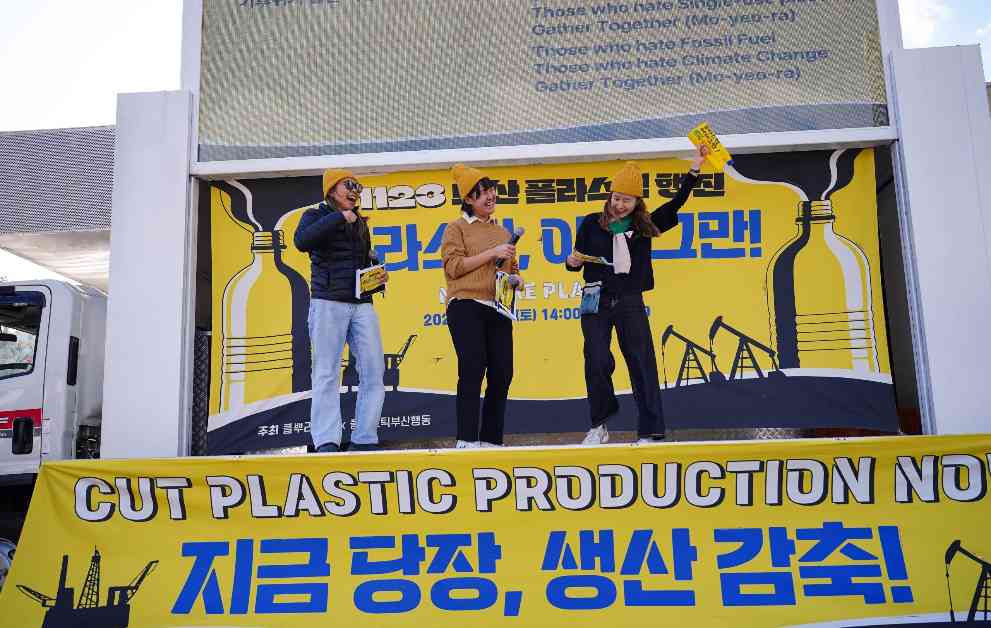Global Pact on Plastic Pollution: Addressing the Urgent Need for Production Curbs
Delegates from more than 175 countries have gathered in Busan, South Korea, for a crucial environmental summit aimed at combating the escalating crisis of plastic pollution. This landmark event marks the final round of negotiations for a legally binding Global Plastics Treaty, a promise made by world leaders two years ago to address the issue at its core – from production to disposal.
State of play on plastic production
Amid mounting pressure from environmental activists and civil society groups, the central point of contention among delegates revolves around whether the treaty should include measures to regulate plastic production. While downstream consequences of plastic waste, such as marine pollution and human health risks, often take the spotlight, the production process itself directly contributes to environmental degradation and global warming.
Environmental Investigation Agency campaigner, Jacob Kean-Hammerson, emphasized the critical need for upstream measures to regulate polymer production and eliminate harmful chemicals. The $712-billion plastic industry’s projected growth poses a significant threat to achieving global climate targets, making it imperative to set mandatory caps on virgin plastic production and phase out single-use plastics.
‘Get out of jail free’ card for fossil fuels
Despite growing calls for stringent regulations, major fossil fuel-producing countries, along with industry lobbyists, have been pushing to exclude plastic production from the treaty. This move is seen as a strategic maneuver to maintain demand for fossil fuels under the guise of promoting plastic use, undermining efforts to transition towards sustainable alternatives.
Melissa Blue Sky, a senior attorney, highlighted the obstructionist tactics employed by certain countries to derail negotiations and dilute the treaty’s provisions. The lack of consensus on key issues, including plastic production, underscores the significant divide in visions for the treaty’s scope and impact.
Non-toxic reuse and refill
Beyond curbing plastic production, environmentalists advocate for the inclusion of binding targets to promote non-toxic reuse and refill solutions as part of the treaty. This shift towards sustainable practices aims to reduce reliance on single-use plastics and discourage harmful waste-to-energy technologies that perpetuate pollution.
Additionally, addressing waste colonialism and ensuring a just transition for workers in the plastics industry are crucial components of a comprehensive treaty. Recognizing the plight of frontline communities, such as Wallace in Louisiana, underscores the urgent need to prioritize environmental justice in global policymaking.
Finance for implementation
As discussions in Busan unfold, the question of funding for treaty implementation remains a critical issue. Campaigners are pushing for a ‘polluter pays’ mechanism to hold plastic producers accountable for their environmental impact. However, striking a balance between private finance mechanisms and public funding is essential to ensure equitable contributions from all stakeholders.
The outcome of the negotiations in Busan will shape the future of global efforts to combat plastic pollution and safeguard the environment for future generations. The stakes are high, and the decisions made at this summit will have far-reaching consequences for our planet.
In the midst of complex negotiations and competing interests, the need for collective action and unwavering commitment to environmental stewardship has never been more evident. As the world watches, the fate of our planet hangs in the balance, awaiting a decisive and impactful resolution in the fight against plastic pollution.














